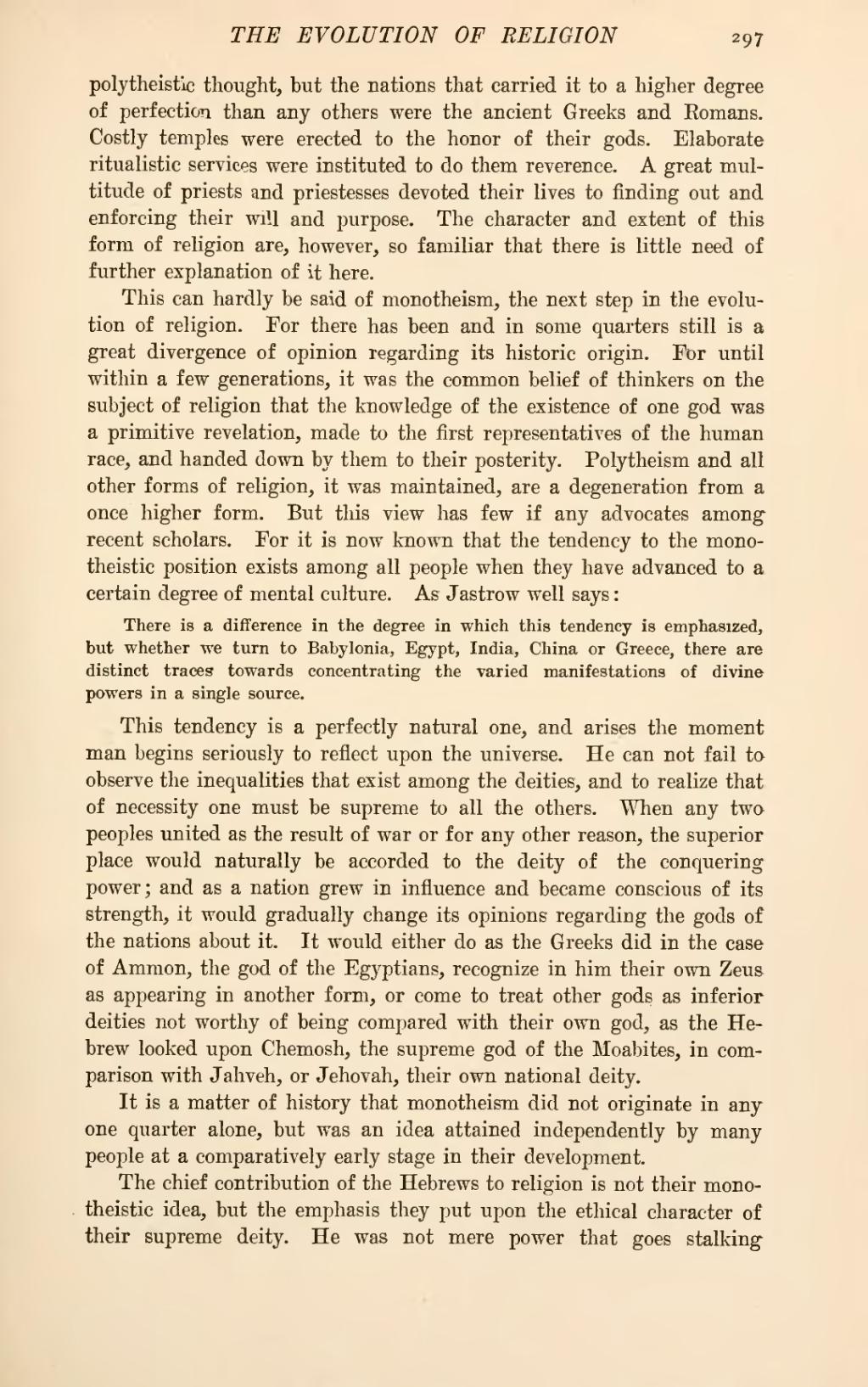polytheistic thought, but the nations that carried it to a higher degree of perfection than any others were the ancient Greeks and Romans. Costly temples were erected to the honor of their gods. Elaborate ritualistic services were instituted to do them reverence. A great multitude of priests and priestesses devoted their lives to finding out and enforcing their will and purpose. The character and extent of this form of religion are, however, so familiar that there is little need of further explanation of it here.
This can hardly be said of monotheism, the next step in the evolution of religion. For there has been and in some quarters still is a great divergence of opinion regarding its historic origin. For until within a few generations, it was the common belief of thinkers on the subject of religion that the knowledge of the existence of one god was a primitive revelation, made to the first representatives of the human race, and handed down by them to their posterity. Polytheism and all other forms of religion, it was maintained, are a degeneration from a once higher form. But this view has few if any advocates among recent scholars. For it is now known that the tendency to the monotheistic position exists among all people when they have advanced to a certain degree of mental culture. As Jastrow well says:
This tendency is a perfectly natural one, and arises the moment man begins seriously to reflect upon the universe. He can not fail to observe the inequalities that exist among the deities, and to realize that of necessity one must be supreme to all the others. When any two peoples united as the result of war or for any other reason, the superior place would naturally be accorded to the deity of the conquering power; and as a nation grew in influence and became conscious of its strength, it would gradually change its opinions regarding the gods of the nations about it. It would either do as the Greeks did in the case of Ammon, the god of the Egyptians, recognize in him their own Zeus as appearing in another form, or come to treat other gods as inferior deities not worthy of being compared with their own god, as the Hebrew looked upon Chemosh, the supreme god of the Moabites, in comparison with Jahveh, or Jehovah, their own national deity.
It is a matter of history that monotheism did not originate in any one quarter alone, but was an idea attained independently by many people at a comparatively early stage in their development.
The chief contribution of the Hebrews to religion is not their monotheistic idea, but the emphasis they put upon the ethical character of their supreme deity. He was not mere power that goes stalking
